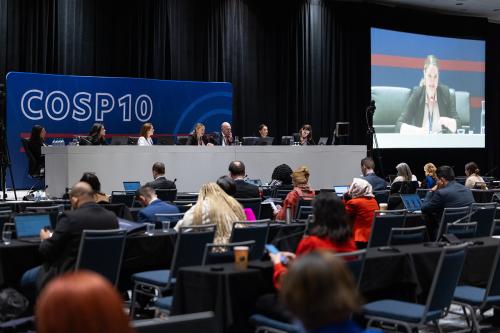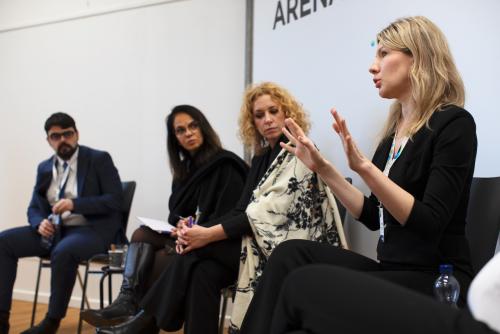Rwanda’s “zero tolerance for corruption” set to continue, with bankers poised to play an important role

In early 2017 nearly 200 police officers implicated in an alleged graft scandal were dismissed from the Rwandan Police Force. This prompted President Kagame to reiterate the importance of fighting corruption in the run up to the election: "All of you should stand up against corruption," he said. "You cannot stay silent and expect others to hold those involved accountable."
Following his re-election in August 2017, it’s unlikely that there will be any policy changes when it comes to tackling corruption, and for the private sector, the importance of actively preventing involvement in corruption has come to the forefront.
The particular role of bankers and the financial services sector in the preventative aspects of anti-corruption measures was highlighted in a recent training session in Kigali on preventing money-laundering organised by the Basel Institute on Governance and Rwanda’s Office of the Ombudsman, the national anti-corruption authority.
The training was part of a wider joint project that aims to increase the involvement of non–state actors in the fight against corruption. This intensive training session provided insights into the perception of corruption in the Rwandan banking sector as well as country specific risks and challenges.
Corruption challenges in the Rwandan banking sector
In order to tackle the misuse of the financial system through corrupt payments being laundered by white-collar crime networks, the bankers underscored the importance of establishing their own collective approaches to counter this type of criminal activity. The bankers were keen to establish closer working relationships within their sector to strengthen pro-active engagement that could prevent the misuse of the financial system, and thereby actively counter corruption.
Typical money-laundering schemes in Rwanda were described as involving high-frequency, low-value transactions made to multiple financial institutions almost simultaneously. They often remain undetected due to the lack of any coordinated communication channels. In this context, the bankers discussed the role of the Financial Intelligence Unit and the importance of information sharing.
At the same time, the banks are under pressure to increase profits and this contributes to fierce competition. For many banks and their stakeholders, the idea of turning away a lucrative new client on the basis of compliance concerns is still often seen as an unacceptable competitive disadvantage. This is fostered by a lack of common anti-money laundering (AML) standards within the financial industry, limited awareness of best practices and thus an unlevel playing field. Despite the official "zero tolerance" for corruption policy, the bankers promoted a better understanding of the economic value of strong AML controls and the importance of preventing corruption and greater support by senior managers.
The role for greater engagement by universities and business schools to teach ethics and to help foster a culture of integrity through integrating compliance and anti-corruption modules into their programs was also identified as a way forward.
Outlook
The bankers expressed their openness to new approaches to prevent and tackle money laundering and corruption. They see these as being based on improved information exchanges with regulators as well as through collective initiatives involving the banks themselves, such as compliance officers regularly meeting to exchange best practices in AML and other compliance challenges, and they see the Wolfsberg Group as providing an inspiring example.
Many of the current challenges are regarded as being rooted in the need for improved awareness so partnering with educational institutions is also seen as a possible way forward. It goes to show that although Transparency International reports that Rwanda has one of the lowest corruption scores in Africa according to the Corruption Perceptions Index, the banking sector still recognises that it has an important role to play, particularly in identifying and addressing the more complex and hidden structures that enable corruption within the national financial system.




